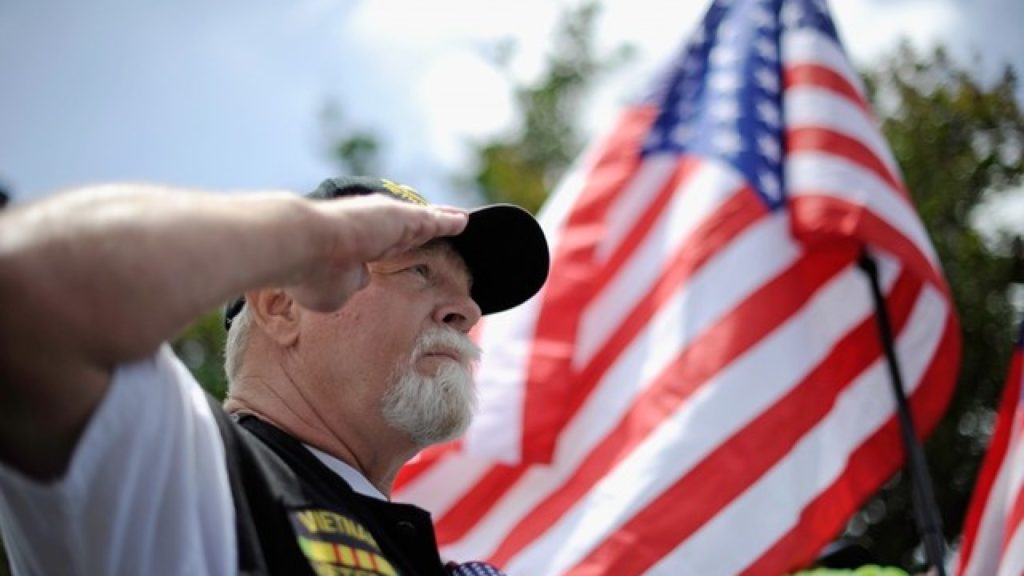 There is no doubt that hospitals and residential facilities provide very valuable and useful services to veterans, and in some cases that care may even be life-saving in nature. However, when it comes to senior home care, it’s also true that in-home care is often more beneficial for the unique needs which veterans have in Tupelo and elsewhere around the country. With Memorial Day on the horizon, now is a good time to be thinking about the kinds of care required by veterans, in return for the tremendous service they have provided to our country.
There is no doubt that hospitals and residential facilities provide very valuable and useful services to veterans, and in some cases that care may even be life-saving in nature. However, when it comes to senior home care, it’s also true that in-home care is often more beneficial for the unique needs which veterans have in Tupelo and elsewhere around the country. With Memorial Day on the horizon, now is a good time to be thinking about the kinds of care required by veterans, in return for the tremendous service they have provided to our country.
Physical needs
Many veterans have substantial physical needs, even years after their time of service. There is the possibility they may have been wounded in combat or exposed to an exploding grenade while serving a tour of duty in an unstable area. This could leave a veteran unable to manage even basic needs such as navigating about the home, dressing, and bathing, preparing meals, and managing bathroom trips. In some cases, disabled veterans require 24-hour in-home service just to meet the challenges of daily life.
Massage therapy or some other form of physical therapy may be needed to help a veteran recover from some kind of physical trauma, and in this situation, a specialist can be brought in to satisfy those needs. Sometimes there is no really traumatic physical injury, but severe stress has been placed on knees, back, shoulders, and other joints after having been exposed to the physical demands of military life in a combat zone. Old injuries and physical stresses can come back in older age to present a serious problem for an aging veteran.
It has been found that some veterans were exposed to chemicals, gases, and other harmful agents during their period of service, and these conditions often come back to plague the veteran in older age. War is a nasty business, and humans have found a number of different ways of harming each other, many of them being used during acts of warfare. Unfortunately, the veteran of those wars is frequently exposed to the very worst abuses while serving his/her country, and some of those problems continue to afflict the person for years after the original exposure.
Mental and emotional needs
Quite often, a veteran is exposed to even more emotional stresses than physical ones during the period of their service. These are unseen scars that for many veterans, simply never fade away. Some of the ghastly sights which are routinely observed in combat remain etched in the mind of a veteran for life and are sights which most humans are simply not prepared to cope with. Anxieties and fears can be just as real for a veteran even decades after the original event, and for some, they literally never leave one’s consciousness.
It’s fairly well known that many veterans suffer from post-traumatic stress disorder (PTSD), which is often characterized by vivid flashbacks and powerful memories of unpleasant experiences sustained in combat situations, or other extremely stressful events. Veterans who are bothered by these kinds of powerful images require therapy by a trained behavioral specialist, who is able to penetrate into the psyche of the veteran to help them come to grips with the disturbing recollections. Ideally, this therapy can be administered in the home setting, where the veteran is more comfortable, and better able to accept the assistance in the helpful manner it is delivered.
In-home care for veterans
In order to successfully care for a veteran in the home setting, it is really helpful to know exactly what kind of suffering the veteran is undergoing. Physical issues can be addressed by therapy or daily exercises, and this can help the veteran become more flexible as well as more independent when mobility begins to improve. Ongoing physical therapy can help a veteran with impairments to become more active and enjoy a better quality of life during their later years.
Veterans bothered by emotional problems might require more professional help. In many cases, veterans are reluctant to expose themselves to triggers that bring back unpleasant memories, and they avoid or become disturbed by situations like loud noises or things that tend to startle them. In many cases, older veterans may have mental or emotional issues that have never been diagnosed, because they have refused any kind of medical or therapeutic assistance. An in-home caregiver can perform valuable service in such cases, helping to persuade the veteran to seek treatment which might put them on the path to emotional wellness again.
An in-home caregiver can be a very valuable resource for veterans who have special needs, which they have as a result of the service provided to their country. Although other resources can undoubtedly provide very valuable assistance as well, aging veterans are just like other seniors in that they will almost always prefer to stay in the comfort of their known surroundings, and that’s where care can be the most effective.
